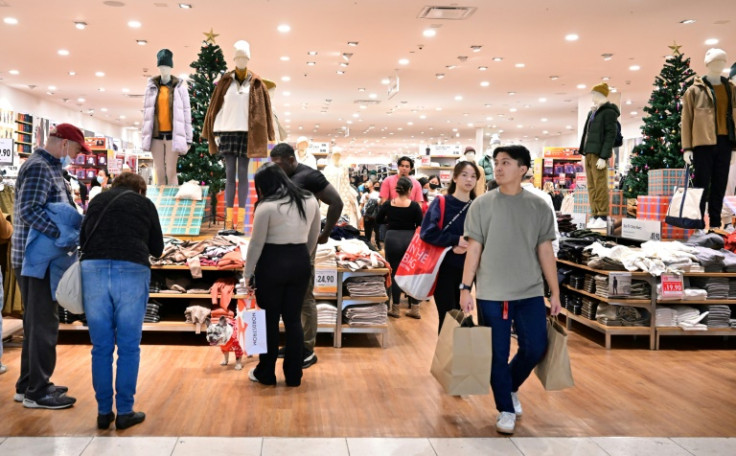US Retail Sales Contract In November On Auto And Other Goods

Retail sales in the US turned negative in November as the holiday shopping season got underway, dragged by auto, furniture and building supplies, according to official data released Thursday.
The contraction comes as American consumers contend with persistently high inflation that has bumped up the cost of many items ranging from groceries to clothing.
While consumer price increases have eased slightly in recent months, the pace of inflation remains around three times the pre-pandemic level.
Retail sales slumped 0.6 percent in November from October to $689.4 billion, more than expected, according to the latest Commerce Department figures.
The numbers, which follow a bounce in October, came as auto sales plunged 2.6 percent in November from the month before, while sales of goods related to furniture and building materials dropped by a similar rate.
Compared with November 2021, retail sales was 6.5 percent higher.
As costs remain elevated, the latest data suggests consumers are spending more on essential items like food and healthcare, with spending at food and beverage stores, as well as at grocery stores, jumping 0.8 percent from October to November.
Sales at restaurants and bars remained robust as well, rising 0.9 percent.
But with households squeezed by heightened costs, spending on other items slipped.
Sales at gasoline stations edged down 0.1 percent.
The data are seasonally adjusted but do not take into account changes in prices. This means that as costs rise, a shopping dollar does not stretch as far and consumers have had to use more of their earnings on staple goods while seeking bargains.
Despite the glum figures, which come as the year-end shopping season gets underway, analysts point to underlying resilience for now.
"Overall, consumption remains supported by strong job growth and rising nominal incomes and wages and a cushion from excess savings," said Rubeela Farooqi of High Frequency Economics.
While higher borrowing costs as the Federal Reserve pushes on with hikes in the benchmark interest rate may bite, gradually easing inflation "should be supportive of households," she said.
But Ian Shepherdson of Pantheon Macroeconomics cautioned that economists remain "alert for a sharp slowdown in the first quarter as a weakening labor market makes people less willing to draw down on savings accumulated during Covid."
© Copyright AFP 2024. All rights reserved.




















